[/caption]
The payload for the next shuttle mission, STS-133 was on full display at Kennedy Space Center’s Space Station Processing Facility, including the mission’s “7th” crew member – Robonaut (or R2 as he is known to his friends). A media event on Aug. 12 showcased elements that Discovery is scheduled to lift to orbit on Nov. 1, 2010 at 4:33 p.m. EDT.
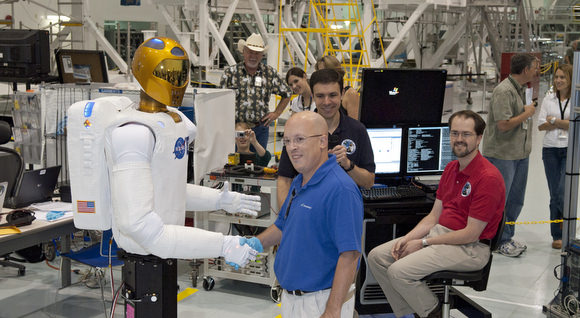
Without a doubt the star of the show was R2 himself. The mostly-white android looked every bit the science-fiction meets science-fact as the imagery we have all seen on television and the internet have made him out to be. Robonaut 2 had originally been designed to only be a technology demonstrator, but engineers wanted to see how the system would operate in space and he was given a seat on the flight (albeit way in the back).
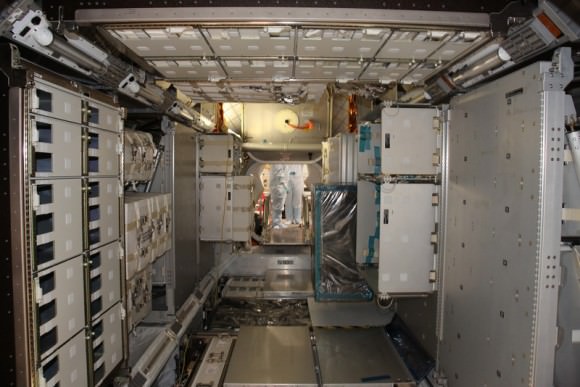
R2 was not the only horse at this rodeo however; NASA also had other flight hardware elements on display that will roar into orbit this fall. One of these was the Permanent Multipurpose Module (PMM) that will be transported to the space station in Discovery’s payload bay (with R2 nestled inside). The PMM is in actuality the modified Leonardo multi-purpose logistics module (MPLM) and when the mission is completed the PMM will be left attached to the station.
Space Shuttle Discovery will carry Space Exploration Technologies’ (SpaceX) DragonEye (DE) relative navigation sensor on this mission. It is expected that this sensor will be installed about half a month later than originally planned due to a failure in the laser rod that was detected during testing. This item however was not on display at this event.
STS-133 could possibly be Discovery’s final flight (it has been mentioned that if there is an STS-135 – that Discovery might fly that mission). It will mark the 35th time that one of NASA’s orbiters has traveled to the orbiting laboratory. The crew consists of Commander Steve Lindsey, Pilot Eric Boe and Mission Specialists Alvin Drew, Michael Barratt, Tim Kopra and Nicole Stott.
More images of R2 and Leonardo:
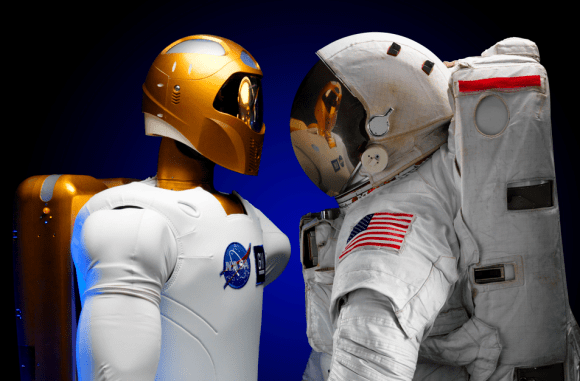

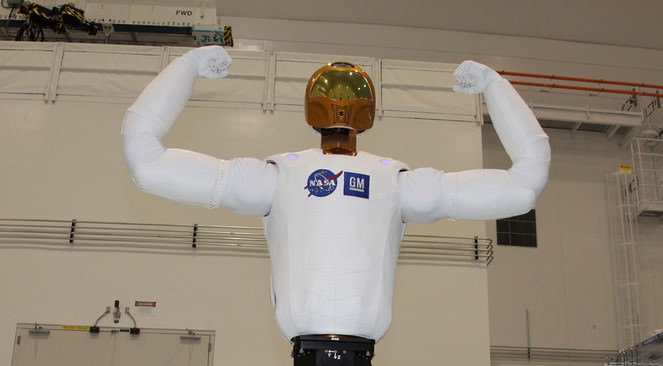
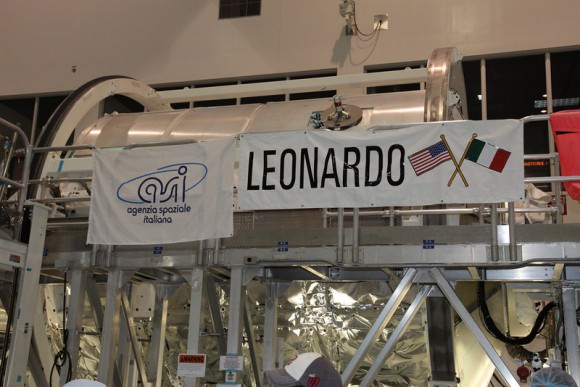
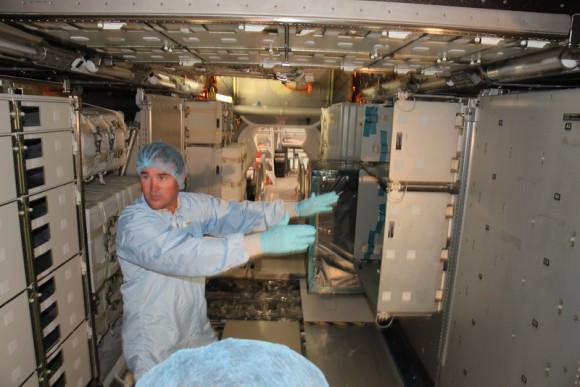
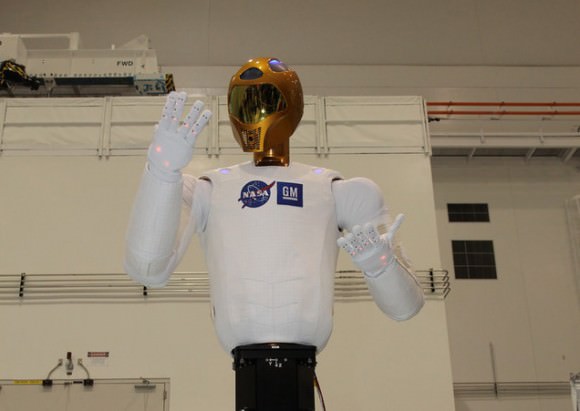
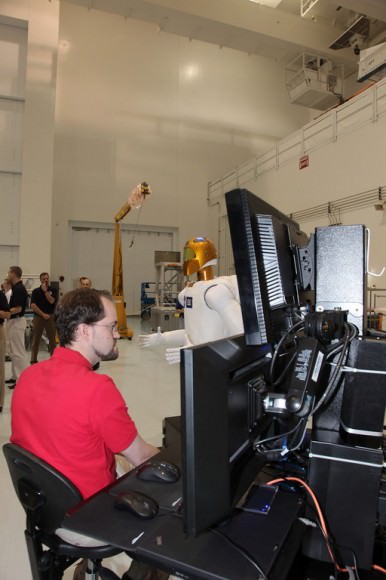
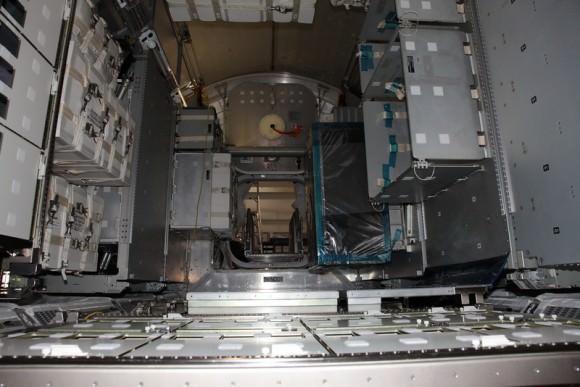
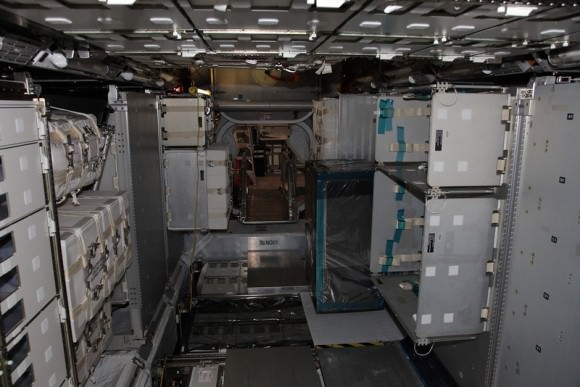
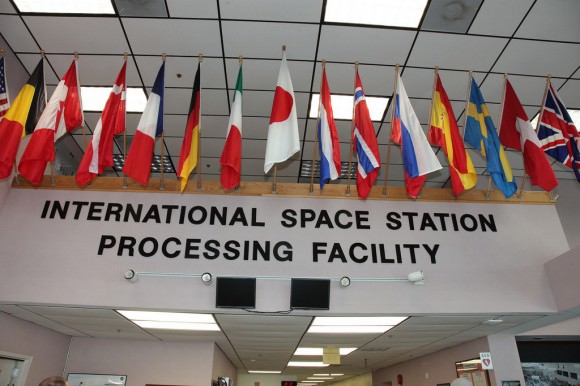
If the handshake isn’t arranged, I find it encouraging that a humanoid robot is allowed to interface with humans without safeguard. Maybe there _is_ a potential for manned+robotic exploration.
He looks more like “The Stig”!
R2? Shouldn’t that be R0? (Robo-nought)
“..about half a month” – quaint! Two weeks perhaps? 🙂
Robonaut is more Evolutionary than Revolutionary. NASA has been working on it since mid 80’s. The original Space Station concept was lot more massive. What is flying today is glorified space lab. The old concept needed too many EVA to build it. So they were thinking of using robots. But robotic science was not up to the task back then. I suppose it was the extraordinary development in computer hardware over that time that made it possible now.
IN SF movies the robot always starts killing at one point in time.
I want to telecommute to a job on the Moon! Coming soon! That is… HOPEFULLY I won’t instead simply be flipping McMoon burgers here on duh earth instead…. HEy! What happened to my economy? I know I left it laying around here somewhere~
What is his means of locomotion? We never see the lower part of him (or is it a her?). What’s R2’s mission? How is R2 powered? Come on folks. We need more specifics!
@knealy
There’s isn’t much detail available, but it seems that the bot is eventually intended to be trialled on light EVA duties. So you might expect see it attached to one of the remotely controlled arms on the exterior of the ISS (which would also answer your question about locomotion).
You can read the latest about what it’s up to via twitter if that helps.
Knealy – there isn’t anything below the waste. If you look in some of the images above you’ll see a black stand – below that? A black base and elctrconics connector – that’s it. R2 – is a him. R2’s mission is to assist astronauts on EVAs. Locomotion for this model is Canadarm 2, power will be provided via Canadarm 2.
Jason: if “there isn’t anything below the waste” (I think you meant waist) how can you be so sure that R2 “is a him”? :))
Read “all” about R2